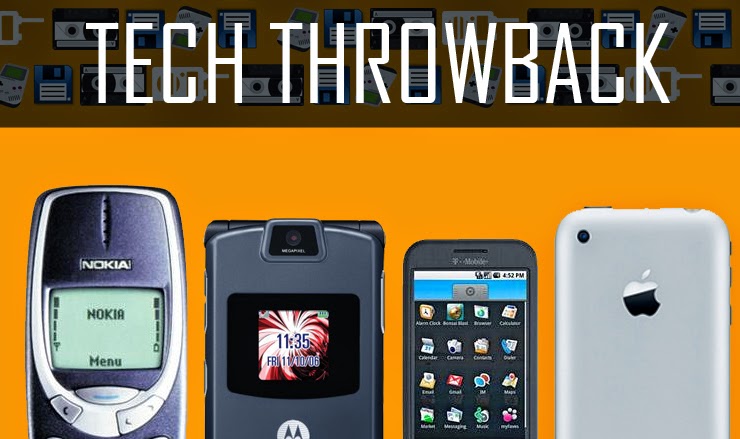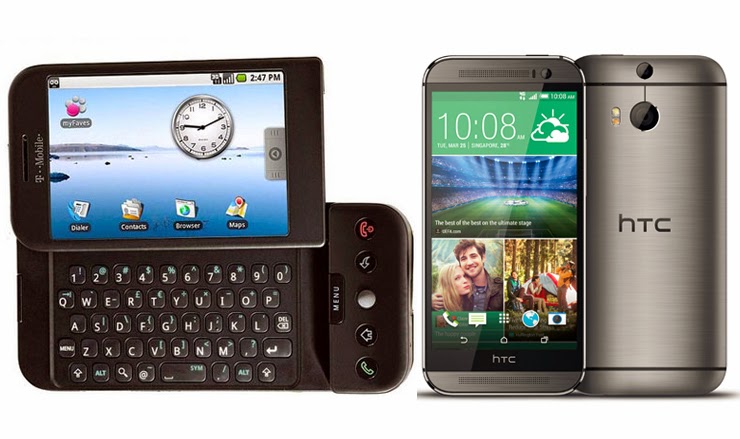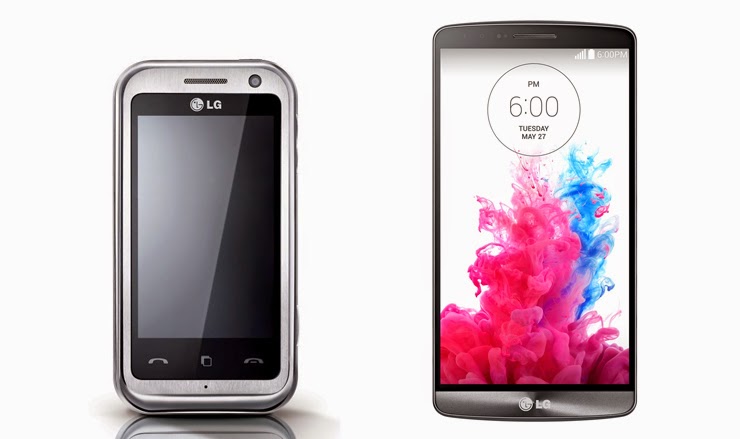When shopping for a new phone, a good
handset is often measured in terms of screen size, number of processor cores, amount
of RAM, storage capacity, LTE connectivity, the amount of pixels in its camera
and even how long its battery will last on a single charge.
But before the smartphone race was about
octa-core processors, gigabytes of RAM, Full HD displays and cameras, and super-fast
internet connections; there was a time when a 600Mhz processor and 256GB of RAM
was fast enough for everyday use and a 900mAh battery can last more than 3
days.
This Thursday, we take a look at the
grandfathers of today’s most popular models of smartphones.
HTC
Dream G1 (yr. 2009)
The HTC Dream G1 is one of the first
handsets to be powered by Google’s Android mobile operating system. It comes
with Android 1.6 Donut and features a 528Mhz single-core processor, 192MB of
RAM, 256MB of storage, a 3.2-inch display with 320 x 480 resolution.
There’s a 3.15MP camera at the back, a
1150mAh battery and a slide-out QWERTY keyboard.
Samsung
Galaxy i7500 (yr. 2009)
The Galaxy i7500 is the grandfather of all
Galaxies from the Korean manufacturer. Released back in 2009, the original
Galaxy was powered by Android 1.5 cupcake and features a 3.2-inch AMOLED
display with 320 x 480 resolution.
It has a 528Mhz processor, an Adreno 130
GPU, 8GB of built-in storage and 128MB of RAM. It only has a rear camera, which
packs a 5MP sensor.
LG
KM900 Arena (yr. 2009)
The LG KM900 Arena was one of the Korean
manufacturer’s most known handset model. It was the model that brought LG back
into the game to compete with that time’s top dog of the industry – Nokia and
the then rising Samsung.
The handset sported a 3.0-inch display with
Gorilla Glass, 8GB of internal storage, a 5MP rear camera with flash and
Schneider-Kreuznach optics and a front-facing camera. The KM900 Arena ran on
the now extinct Symbian OS.
Apple
iPhone (yr. 2007)
The iconic iPhone is now celebrating its 7th
anniversary. The model that started the world’s obsession with smartphones with
full touch displays boasted a 3.5-inch panel with 320 x 480 resolution.
It also has a 412Mhz processor, up to 16GB
of non-removable storage and a 2MP rear camera. At that time, the handset was
running on iOS 3.0 and only had GPRS connectivity. However, it was one of the
first smartphones that offer a full set of features including Bluetooth, Wi-Fi,
an accelerometer & proximity sensor, and a Gorilla Glass panel.
Motorola
Razr V3 (yr. 2004)
Motorola’s most successful phone model in
the mid-2000s was its clamshell design Razr V3. It was one of the first
handsets to incorporate metal into its design. It sports two displays, the
inner 2.2-inch main panel and a smaller outer display for notifications.
The camera has a VGA sensor and the
internal storage limited to 5.5MB. There’s no built-in Wi-Fi radio, but there’s
Bluetooth and GPRS connectivity.
Nokia
3310 (yr. 2000)
The Nokia 3310 is probably one of the most
popular smartphones in history. It’s as basic as a phone could get and packs
barebones features including a monochrome graphic display that displays 5 lines
of text and a 900mAh battery. There’s no data connectivity, no Wi-Fi, no
Bluetooth and no USB connectivity.
Although the phone is missing a lot of
features compared to today’s models, the appeal of the 3310 is its durability.
The device doesn’t suffer from any bend gate or gap gate issues and many people
will attest to the 3310’s superiority over any smartphone when subjected to a
drop test.



















